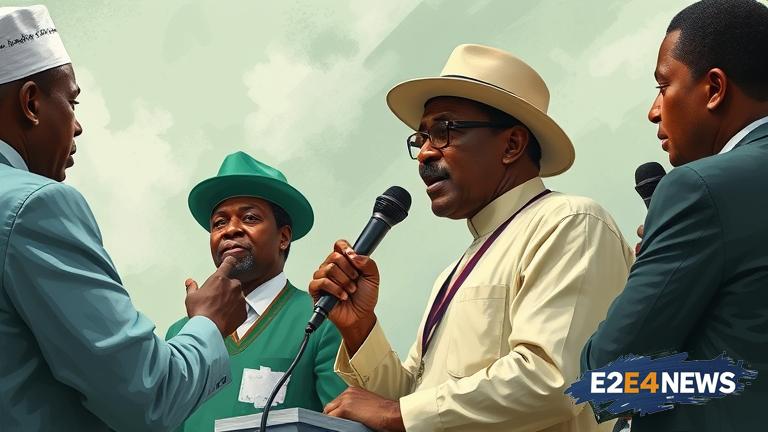The Peoples Democratic Party (PDP) has recently announced its decision to zone its presidential ticket to the Southern region of Nigeria, sparking a wave of comments and reactions from various stakeholders. This move has been met with both praise and criticism, with some hailing it as a step towards promoting regional balance and others condemning it as a ploy to exclude certain groups. The PDP’s decision is seen as a strategic move to gain support from the Southern region, which has been a key battleground in Nigerian politics. However, some have argued that the decision is not in the best interest of the party, as it may alienate potential supporters from other regions. The zoning of the presidential ticket has also raised questions about the party’s commitment to meritocracy and the potential for a candidate from the South to emerge as the party’s flagbearer. Despite the controversy, the PDP has maintained that its decision is in line with its constitution and is aimed at promoting fairness and equity. The party’s national chairman has stated that the decision was taken after careful consideration and consultation with stakeholders. The zoning of the presidential ticket has also sparked a debate about the role of region in Nigerian politics, with some arguing that it is a necessary evil to promote balance and others seeing it as a divisive tactic. The PDP’s decision has been praised by some Southern leaders, who see it as a long-overdue recognition of the region’s contribution to the party. However, others have criticized the decision, arguing that it is a recipe for disaster and may lead to the party’s downfall. The controversy surrounding the zoning of the presidential ticket has also highlighted the deep-seated divisions within the PDP, with some members openly opposing the decision. Despite the challenges, the PDP remains committed to its decision, and it is likely that the party will proceed with its plans to select a candidate from the South. The implications of the PDP’s decision are far-reaching, and it is likely to have a significant impact on the outcome of the presidential election. The party’s decision may also influence the decisions of other political parties, which may be forced to re-evaluate their own zoning arrangements. In the coming weeks and months, the debate over the zoning of the presidential ticket is likely to continue, with various stakeholders weighing in on the issue. The PDP’s decision has also raised questions about the future of Nigerian politics, with some seeing it as a step towards a more regionalized political system. Others have argued that the decision is a retrograde step, which may undermine the country’s progress towards a more inclusive and equitable political system. The controversy surrounding the zoning of the presidential ticket has also highlighted the need for a more nuanced and informed discussion about the role of region in Nigerian politics. Ultimately, the outcome of the PDP’s decision will depend on a variety of factors, including the party’s ability to manage its internal divisions and the response of other stakeholders to the decision. As the debate over the zoning of the presidential ticket continues, it is clear that the PDP’s decision will have far-reaching implications for Nigerian politics. The party’s commitment to its decision is likely to be tested in the coming weeks and months, and it remains to be seen whether the decision will ultimately benefit or harm the party. The zoning of the presidential ticket has also sparked a debate about the role of the PDP in Nigerian politics, with some seeing the party as a dominant force and others viewing it as a spent force. The PDP’s decision has also raised questions about the party’s relationship with other stakeholders, including civil society groups and the media. The controversy surrounding the zoning of the presidential ticket has also highlighted the need for greater transparency and accountability in Nigerian politics. The PDP’s decision has been praised by some for its boldness and willingness to take risks, while others have criticized it for its potential to create divisions and undermine the party’s chances of success. As the debate over the zoning of the presidential ticket continues, it is clear that the PDP’s decision will have significant implications for Nigerian politics and the country’s future.
